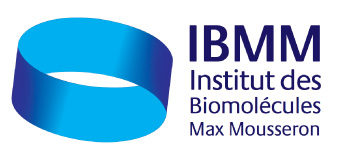New methods to make, break, and decorate polymers
Séminaire Chimie ED459
Dr. Jeung Gon
Le Vvendredi 16 Septembre 2022 à 14h
Délégation Régionale CNRS, Amphithéâtre (1919 route de Mende)
Date de début : 2022-09-16 14:00:00
Date de fin : 2022-09-16 15:30:00
Lieu : CNRS amiphi DR13
Intervenant : Dr. Jeung Gon
Chemistry Department, Jeonbuk National University, Jeonju, South Korea
Organic & Polymer Synthesis Lab @ JBNU has worked on polymerization, functionalization, and depolymerization to a value-added product. Our view is based on synthetic organic chemistry, which differs from other polymer research groups on final polymer properties. In this presentation, recent accomplishments of our team will be discussed to deliver how we do polymer chemistry.
In part 1, mechanochemical solvent-free polymerization will be explained with the example of mechanochemical ring-opening metathesis polymerization. Important features from green chemistry metrics to the synthesis of mechano-exclusive polymer products will explain why mechanochemistry has become a hot topic in chemical science. In part 2, the progress on postpolymerization modification of commercial polymers will be shared. Recently, we developed a way to attach carboxyl molecules to poly(ethylene oxide) via C–H functionalization. Reaction optimization and future application of resulting functional PEO will be presented. The final part will show the chemical up-cycling of plastics, poly(bisphenol A carbonate) (PC) herein. A highly reactive catalytic system depolymerizes PC with excellent efficiency recovering environmentally concerning bisphenol A. At the same time, the carbonyl group becomes value-added chemicals such as dioxazolones. The process from zero-value waste to high-value chemicals will show how synthetic organic chemists contribute to solving the plastic crisis.
Contact local ICGM : Dr. Evelina
